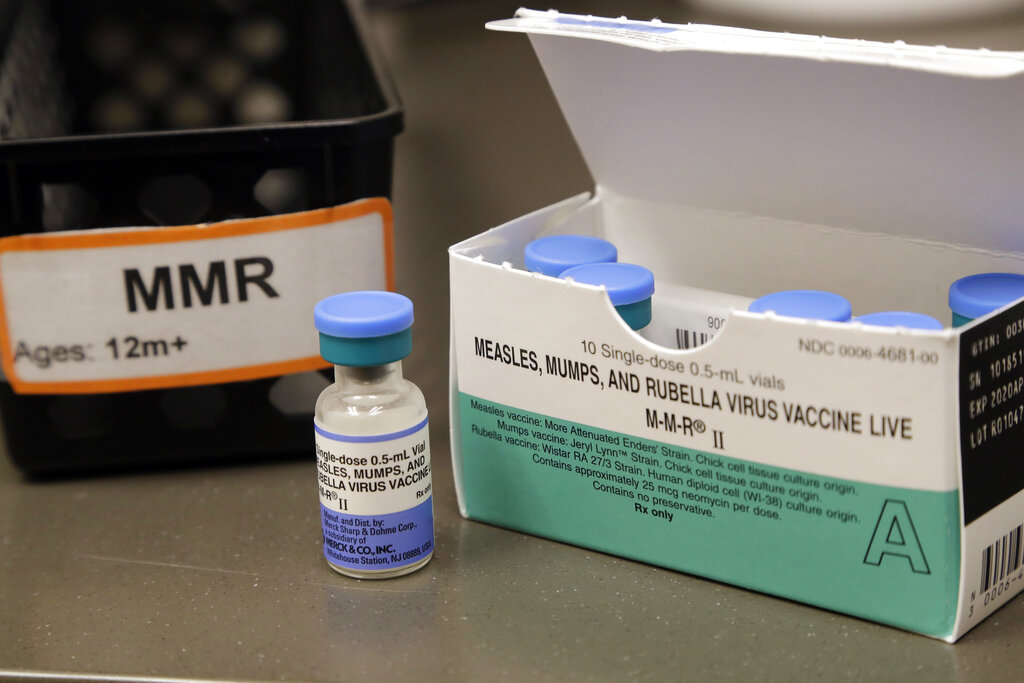
FILE – In this May 15, 2019, file photo, a dose of the measles, mumps and rubella vaccine is displayed at the Neighborcare Health clinics at Vashon Island High School in Vashon Island, Wash. (AP Photo/Elaine Thompson, File)
COLOMBO, Sri Lanka — Sri Lanka and Maldives have become the first two countries in the World Health Organization’s South-East Asia region to eliminate both measles and rubella ahead of a 2023 target, the U.N. health agency announced Wednesday.
“This success is encouraging and demonstrates the importance of joint efforts” in combating diseases as the world grapples with the coronavirus, WHO South-East Asia regional director Poonam Khetrapal Singh said in a statement.
A country is considered to have eliminated measles and rubella when there is no evidence of endemic transmission of the viruses for more than three years and there is a well-performing surveillance system.
Maldives reported its last endemic case of measles in 2009 and rubella in October 2015, while Sri Lanka reported its last endemic case of measles in May 2016 and rubella in March 2017.
WHO praised the efforts of countries in the region to continue vaccinating children while battling the coronavirus pandemic. It said all of the countries in recent years have introduced two doses of measles vaccine and at least one dose of rubella vaccine in their routine immunization programs.
First-dose coverage of measles vaccine is now 88% and second-dose coverage 76% in the region, WHO said. Since 2017, nearly 500 million more children in the region have been vaccinated for measles and rubella, it said.
Last September, the 11 countries in WHO’s South-East Asia region set 2023 as a target for the elimination of measles and rubella. The countries in the WHO region are Bangladesh, Bhutan, East Timor, India, Indonesia, Maldives, Myanmar, North Korea, Nepal, Sri Lanka and Thailand.
WHO said Bhutan, East Timor and North Korea have succeeded in eliminating measles.